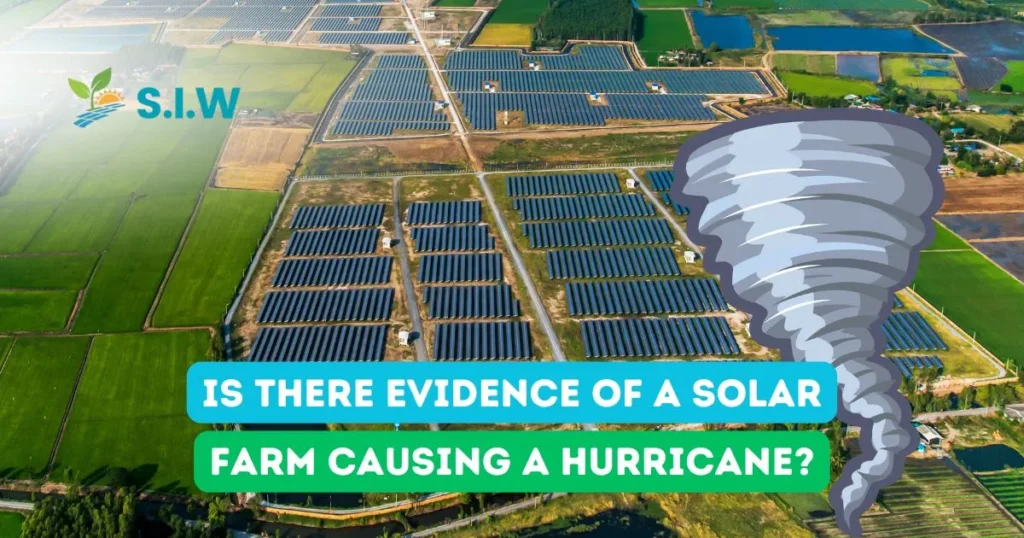In recent years, as renewable energy sources like solar power gain traction, so too have a variety of myths and misconceptions regarding their impacts. One particularly outlandish claim circulating is that solar farms can cause hurricanes. While this notion might sound intriguing to some, it is essential to explore the scientific evidence, or lack thereof, behind such claims. This article will delve into the concept, separating fact from fiction, and provide a comprehensive understanding of solar farms and their environmental impact.
Understanding Solar Farms
Solar farms, also known as photovoltaic (PV) power stations, are large-scale installations where numerous solar panels are used to generate electricity. These panels capture sunlight and convert it into electrical energy, which is then fed into the grid to power homes, businesses, and industries. Solar farms can vary in size, from small community-based projects to massive installations that span thousands of acres.
Solar energy is a clean, renewable source of power that does not produce greenhouse gases during operation. Unlike fossil fuels, which contribute to global warming and air pollution, solar farms offer a sustainable way to meet the world’s energy needs without damaging the environment.
The Science Behind Hurricanes
Hurricanes, also known as tropical cyclones, are powerful storms that form over warm ocean waters. They are characterized by strong winds, heavy rainfall, and can cause significant damage to coastal areas. The formation of a hurricane is a complex process involving several key factors:
- Warm ocean water: Hurricanes draw energy from warm water, typically above 26.5°C (80°F). The warmth provides the necessary energy to fuel the storm.
- Atmospheric conditions: Low-pressure areas, along with moisture and wind patterns, contribute to the formation and intensification of hurricanes.
- Earth’s rotation: The Coriolis effect, caused by the Earth’s rotation, helps to spin the storm, giving it its characteristic cyclonic shape.
Hurricanes are natural phenomena that occur under specific environmental conditions. They have been occurring for millions of years, long before the advent of human-made structures like solar farms.
Debunking the Myth: Solar Farms and Hurricanes
The claim that solar farms could cause hurricanes is not supported by scientific evidence. There are several reasons why this notion is fundamentally flawed:
1. Lack of Energy Disruption
Solar farms operate by converting sunlight into electricity. This process does not involve any significant disruption of atmospheric conditions. Hurricanes require vast amounts of energy, primarily derived from warm ocean waters. The energy captured by solar panels is minuscule compared to the energy involved in hurricane formation.
2. Absence of Heat Generation
While solar panels absorb sunlight, they do not generate the kind of heat that could influence large-scale weather patterns. In fact, the presence of solar panels might slightly reduce the temperature of the area they cover by reflecting some sunlight back into the atmosphere. However, this effect is negligible and certainly not enough to contribute to the formation of a hurricane.
3. No Impact on Ocean Temperatures
As hurricanes form over oceans, any claim that solar farms could cause hurricanes must address how these installations could affect ocean temperatures. Solar farms are typically located on land, often in arid or semi-arid regions. They do not have any direct impact on ocean temperatures, which are the primary driver of hurricane formation.
4. Scientific Consensus
The scientific community is in consensus that solar farms have no connection to hurricane formation. Numerous studies on climate change, weather patterns, and renewable energy have found no evidence linking solar farms to hurricanes. The idea that solar farms could cause hurricanes is not supported by any credible research or meteorological data.
The Real Environmental Impact of Solar Farms
While solar farms do not cause hurricanes, they do have some environmental impacts that are worth considering. These impacts, however, are generally minimal compared to the environmental benefits they provide:
1. Land Use
Large solar farms require significant land area, which can lead to habitat disruption. However, many solar farms are built on previously disturbed land, such as former agricultural fields or brownfield sites, minimizing their environmental footprint. This approach helps mitigate the solar panels environmental impact by reducing the need to alter pristine ecosystems.
2. Water Use
Solar farms use very little water compared to other forms of energy production, particularly fossil fuels and nuclear power. Some water is needed to clean the panels and maintain their efficiency, but this is a minor impact compared to the water-intensive processes used in traditional energy production.
3. Materials and Manufacturing
The production of solar panels involves mining and processing materials like silicon, silver, and aluminum. This process has environmental impacts, including energy use and emissions. However, these impacts are one-time events associated with the manufacturing of the panels, and the overall lifecycle emissions of solar energy are significantly lower than those of fossil fuels.
Solar Farms Are Not a Threat to Weather Patterns
In conclusion, the idea that solar farms could cause hurricanes is a myth unsupported by any scientific evidence. Hurricanes are complex natural phenomena driven by factors far beyond the influence of solar panels. While solar farms do have some environmental impacts, they are overwhelmingly positive when compared to the benefits of reducing greenhouse gas emissions and transitioning to a more sustainable energy future.
The role of solar energy in combating climate change and providing clean, renewable power is crucial. Misinformation and myths, like the claim that solar farms can cause hurricanes, should not distract from the significant benefits that solar energy offers.








